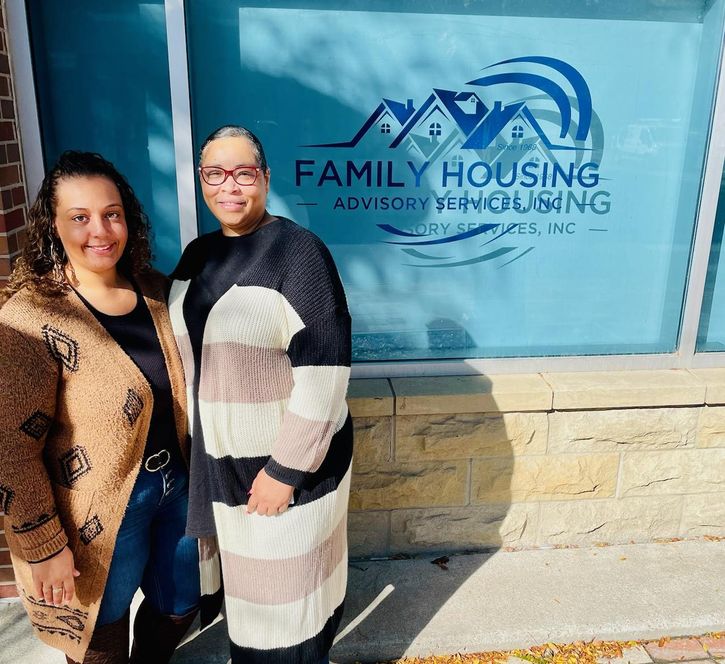For Rushana Perry and her son, finding affordable housing in the Omaha area is proving to be nearly impossible. When her current lease was going up at the renewal period, she made the difficult decision to move out, since she knew it would be unaffordable. Now she’s hitting brick walls as she tries to find a place she can afford, while being able to pay the rest of her bills as well.
Some of the obstacles she’s encountered are challenges meeting rent requirements, including making three times the amount of rent per month, lack of response from property managers and long waiting lists for application approval.
“My options are limited, I am stuck between living with family and not able to find a place due to income requirements, no response from my landlord as well as pinching income to meet monthly needs,” Perry said.
Monica Beasley is the Assistant Director of Tenant Services at Family Housing Advisory Services in Omaha. Her agency provides many services including housing education, pathways to homeownership, fair housing assistance and more. She is dealing with the increasing cost of housing with many of her clients.

Kahla Stanley, Client Advocate (left) and Monica Beasley, Assistant Director of Tenant Services (right), Family Housing Advisory Services in Omaha
“The rising cost of housing is driving families toward homelessness,” she said. “If we look at the average person (household size of three) who works a regular 9-5 and brings home $3,300 a month, we find their income needs to be increased to pay the average rent of $1,300 per month and maintain other household bills. The most significant challenge is calculating the rising cost of utilities, insurance, groceries, childcare, etc., making it impossible to stabilize housing for many.”
Beasley adds that many people are dipping into their 401K retirement accounts to avoid losing their homes. However, even after that, they still need financial help so they don’t become homeless. In addition, many seniors are struggling to stay afloat as well.
“Even when they receive a cost-of-living raise through social security benefits, they struggle to make ends meet because the rising cost of rent, utilities, and food prices offset their income,” she said. “They are exhausting the small savings they've worked hard to build to survive. Sadly, clients constantly must rob Peter to pay Paul while they struggle to make ends meet.”
According to a recent update from Omaha Branch Executive Nate Kauffman and John McCoy, assistant economist at the Omaha Branch of the Kansas City Fed, annual expenses for a new mortgage have increased sharply since the pandemic, as well as rent increases in the Omaha area. Demand for housing is strong, but there is limited availability.
“This imbalance between demand and supply has pushed up costs of various types of housing,” said Nate Kauffman, Senior Vice President and Omaha Branch Executive. “Broad increases in construction costs associated with material and labor, for example, have contributed to increased costs related to housing. For new homebuyers, increases in mortgage rates over the past two years have also led to significant increases in mortgage payments aside from demand and supply factors affecting the cost of housing.”
View the update on Nebraska's economy and household finances
Nebraska households appear to be in a relatively solid financial position. Large increases in costs associated with housing, however, may significantly constrain some households.
As a result, purchasing a home at current rates would significantly reduce household savings, which would mean less money for emergency situations, household bills and more. Cornhusker Bank Chief Financial Officer Perry Haralson said home sales are down significantly, and inventory remains low. In Lincoln, new construction sales are down 24.9%, while existing home sales are down 16%. In Omaha, new construction sales are down 8.1% and existing home sales are down 21%.
“We are down more than 60 percent in mortgage originations, and listings in the Omaha and Lincoln market continue to trend tremendously lower,” he said. “Home sales have cooled due to rapidly rising rates and deteriorating affordability. However, price pressures remain due to low inventory.”
Kahla Stanley is a Client Advocate at Family Housing Advisory Services, and as she counsels people like Rushana. However, she is also going through it herself. She’s staying at a place where the rent continues to increase because she cannot find affordable housing.
“Since my renewal last year and the increase in rent prices, the past 10 months I’ve had to add to my paycheck by taking out of my savings in order to cover the cost of my rent,” Stanley said. “Due to me staying and continuously taking out of my savings, it is pretty much depleted. Now, just like Rushana and many of my other clients, any chance I thought I had as far as homeownership is just not in the realm right now.”
However, there is hope on the horizon. Kauffman said in recent months, some inflationary pressures in the broader economy have eased. If this continues, Stanley and Perry may be homeowners sooner rather than later.
“If these pressures continue to ease, and other economic and financial market conditions stabilize, we may see inflationary pressures associated with housing begin to ease as well,” Kauffman added. “This may be positive for potential homebuyers, particularly if job prospects and income from employment continues to strengthen.”
“I am confident that me and all of the hard-working people in the country will be able to accomplish homeownership one day,” Stanley said.
